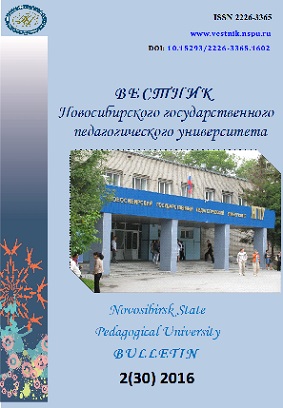О «неубедительнейшей» из помет: (высокая лексика
в толковых словарях русского языка XX-XXI вв.)
On "the least convincing" stylistic label: elevated vocabulary in Russian explanatory dictionaries of the XX–XXI centuries
Author(s): Evgeniya Naumovna BasovskayaSubject(s): Philology
Published by: Новосибирский государственный педагогический университет
Keywords: Style; stylistic label; "poetism"; "pathetism"; explanatory dictionaries of the Russian language; S. I. Ozhegov; pragmatic information
Summary/Abstract: The article is devoted to the presentation of words of high-flown style in explanatory dic-tionaries of the Russian language in the XX–XXI centuries. The problem is not sufficiently re-vealed in literature. Considering the history of the issue, the author emphasizes the importance of S. I. Ozhegov’s, lexicographic innovation, who proposed in the early 1950s, when preparing the second edition of his single-volume "Dictionary of Russian language", the new stylistic label – high. The author emphasizes the relevance of high style words of for the texts of the totalitari-an era and points out that in modern communicative situation, the elevated rhetoric with its strong expressive charge, is primarily in demand for the language of mass media. The author’s comparison of the data of a number of Soviet and post-Soviet dictionaries is presented in the form of tables. The researcher shows the lack of development and unification of stylistic labels. Using the National Corpus of the Russian Language the author analyzes the use of lexemes generally characterized as high, in the texts of various philosophical attitudes and stylistic tones and brings out the differences between the classic "poetisms" and the so-called "pathetisms". "Poetisms" are used to create "decorated" speech and are characteristic primarily of the lan-guage of fiction, and "pathetisms" act as means of the author’s purposeful ideological influence on the minds of the audience. "Poetisms" are rooted in cultural traditions. The expressive poten-tial of "pathetisms" depends on current socio-political situation. The article calls for the need to expand and clarify the information about stylistically colored vocabulary presented in the dic-tionaries with a variety of pragmatic features, adding the newest illustrative speech material.
Journal: Вестник Новосибирского государственного педагогического университета
- Issue Year: 6/2016
- Issue No: 2
- Page Range: 38-48
- Page Count: 11
- Language: Russian

